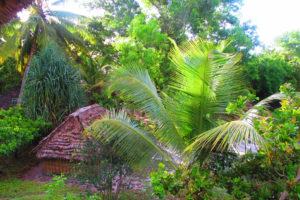Whale Sharks
KITU KIBLU
Responsible Whale Shark Encounters
Located on the South Western corner of Mafia Island a few minutes drive from the airport lies The Whale Shark Conservation & sustainable Tourism base- Kitu Kiblu.
Whale sharks aggregate in the channel between Mafia Island and mainland Africa and are easily seen surface feeding, usually between October and March, providing an opportunity to study and interact with them….visitors have an 80% chance of viewing these magnificent sharks.
Get In Touch

See Whale Sharks with Kitu Kiblu
Kitu Kiblu runs half-day encounter trips allowing visitors to interact with wild whale sharks, learn about their biology and ongoing conservation issues and efforts in a safe, relaxed and respectful way. The encounter trips are launched from the KituKiblu Beach Lodge, Kilindoni, Mafia Island.
They also offer internship programs, for those with an interest in marine conservation looking to gain skills and experience working at sea.
Their budget beach houses are tents placed within stilt houses, nestled amongst old cashew & coconut trees, facing the Ocean. The houses have electrical charge points, lights and fans. These units have shared bathrooms and toilets.
- Budget Accommodation
- $50.00 per person sharing, half board
- Bed and breakfast, with dinner OR lunch
- Full board available upon request
- VAT and Taxes included
- Tourism Development Levy of $1.50 per person per day NOT INCLUDED
- The Whale Shark encounter costs $80 per person including
Refreshments & all snorkelling gear. If NOT staying at Kitu Kiblu $100 pp.
Dive Mafia & Baobab Reisen do not make a profit on Whale Shark Encounters. It shows our support for Jean & Anne de Villiers outstanding work in researching and helping to conserve these mystical creatures of the deep.
About The Whale Sharks
The whale shark, Rhincodon typus, is the world’s largest fish reaching more than 20 meters (65 ft.) in length. They are cartilaginous fish, not mammals, and their name refers to their size and diet of plankton. Despite their spectacular size they are very docile and do not harm humans. The only predators of whale sharks are orcas, white sharks and humans. They are actively fished to be sold in Asia but not in Tanzania.
Whale sharks reach sexual maturity at about 7 to 8m in length (after 20 to 30 years) and are ovoviviparous, which means that they lay eggs but retain these in their uteri until the eggs hatch and the fetuses mature and live pups are “born”. A mature female may have more than 300 eggs and fetuses, at various stages of development, in her two uteri at any one time. It is postulated that the females may mate very few times and may be able to store sperm.
Whale sharks are most often seen in tropical/sub tropical regions. They are solitary and travel alone but aggregate in a few locations around the world, where they can be seen in larger numbers, such as the Yucatan, Ningaloo, Bahrain, Mozambique, the Phillipines and a few other sites. Mafia Island is one of these special locations, however with the longest lasting aggregations and thus one of the best places to study these animals.
Ongoing research and indigenous knowledge has proven that the sharks are in the Mafia channel all year round. More than one hundred animals have been identified that feed here on surface plankton from September to March, when they are easily seen. The whale sharks aggregating in Mafia are most commonly not yet sexually mature, being typically less than about 8 meters in length and 80% of these are male. The reason for this gender imbalance and size prevalence is still unknown but it is seen amongst similar aggregations of sub-adult whale sharks everywhere else, except the sub-adult whale shark aggregation in the Red Sea and the adult aggregations in the waters of the Galapagos islands.
Kitu Kiblu and the founders of Kitu Kiblu; Dr. Jean de Villiers Ph.D. and Ms. Anne de Villiers M.Sc. who are also founders of the Mafia Island Whale Shark Conservation Society, have been associated with WWF Tanzania-funded whale shark research since 2007 and continue to support whale shark research and conservation.
Kitu Kiblu was founded on three, to us self-evident, concepts:
1 – For whale shark conservation to be sustainable, the live, wild animals must be worth more to the authorities who have the power to protect them than dead or caged animals.
2 – Wild animals are essential components of their ecosystems. They have an inherent right to live free and unmolested by humans and it is in our own vested interest to defend that right.
3 – Through research we can understand enough to predict whale shark behaviour and interact with them in a way that does not interfere with them or do them any harm.
Irresponsible tourism can have very negative consequences.
Animals are often hit by speeding boats and their feeding disrupted by people jumping in front and on top of them. They are hazed, harassed, molested and ridden by unscrupulous operators and their passengers. Even tourists are endangered by speeding boats and people congestion.
The whale shark code of conduct seeks to control this and mitigate negative impacts and ensure that you have a quality experience.
At Kitu Kiblu we use to the international whale shark code of conduct and take further measures to ensure that our interactions are safe, non-disruptive and respectful.
We implore you to insist that any operator you use informs you of the code of conduct, adheres to it and controls the wayward behaviour of their clients and makes every effort to stick to the speed limit.








